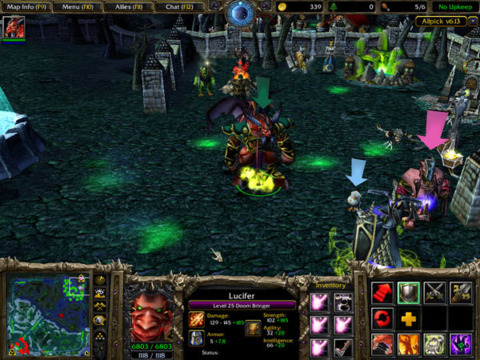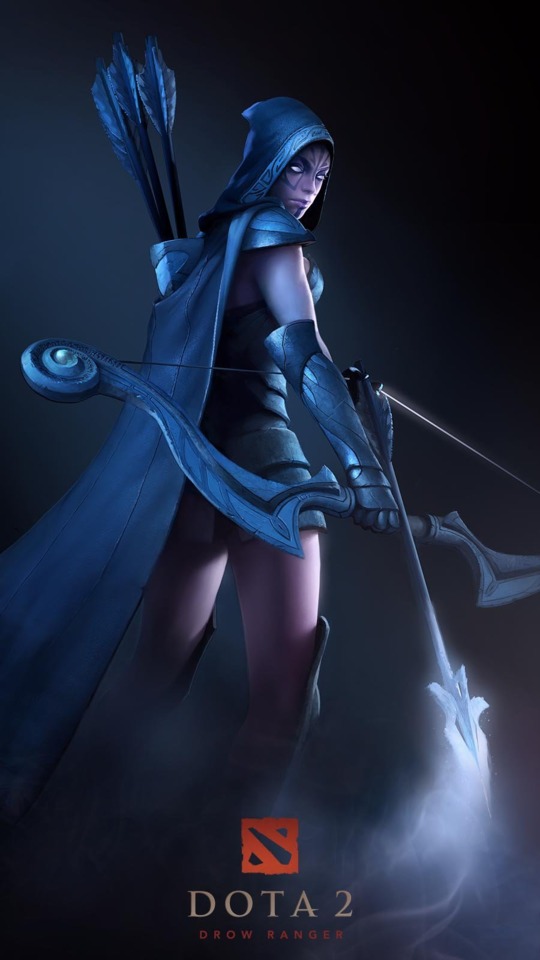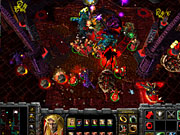Pro-gaming, DOTA, and sexism: Tammy 'furryfish' Tang interview
We have a chat with the team leader of PMS Asterisk* about the popular eight-year old Warcraft 3 mod, as well as sexism in pro-gaming.

GameSpot Asia managed to secure a little chat with Tammy "furryfish" Tang Zhao En, the team leader of PMS Asterisk*. We brought up topics such as the enduring popularity of Warcraft 3 mod Defense of the Ancients and the growing issue of sexism in game tournaments.
GameSpot Asia: Tell us a bit about yourself.
Tammy Tang: I have been gaming since I was a kid. My dad was a techie so we always had a computer with the 14.4mbps modem running in the house. I think it was around 1995 when I seriously started gaming when my friend passed me his Warcraft 2 CD back in primary school. In secondary school, I was playing Counter-Strike competitively.
GSA: How about your team PMS Asterisk*?
TT: My team was established in 2005 after meeting up with Dawn "pinksheep" Yang at a female showcase stage match at World Cyber Games 2005. We were then picked up by the PMS clan that originated in the USA. We were the first team from Asia to be within the clan.
GSA: What games are the PMS clans focused on?
TT: We deal with all kinds, ranging from World of Warcraft to Halo, the Call of Duty series and even Guitar Hero as well (PMS Lilirock). The Asian team is focused on DOTA.
GSA: What other games do you play apart from DOTA?
TT: I play World of Warcraft, Starcraft II, HON, a little Counter-Strike now and then, and rhythm games like O2Jam/ O2Mania.
GSA: Let's talk about your current job. When did you start working with Razer?
TT: October 16, 2007. Before this, I was doing shoutcasting for a few gaming events here and there. There was this one event at I was shoutcasting for during Games Convention Asia 2007. Razer had a booth nearby, and they were hiring, so I just walked in and applied. I am currently in charge of community, e-sports, and social networking.
GSA: How do you like this current position?
TT: It's definitely fun. I like the challenge of reacting to people and what they might say. It's always unexpected and interesting to deal with. Sometimes I can't let my personal viewpoints interfere since I'm speaking on behalf of Razer.
GSA: Let's switch gears to DOTA. Why did you pick this game to play competitively in?
TT: Well, I love team games for one. I played a lot of FPSs during the late '90s and early 2000, so I needed a change with something more strategic. DOTA is definitely a thinking-man's game: you have 10 people in the game and each player has to react differently to their opponents. I also have to keep into account that each hero will have three to four different spells to use and up to six different items on standby.
Strategically, it's more fun to play with than CS where you have a sniper, two pointmen, and some midrange players. Every patch has different updates which make you change up your strategy thanks to the introduction of new heroes, new items, and updated map parts.

GSA: Why is it still popular up to now?
TT: When it first came out, it went competitive quite fast. It picked up quite a big base of players. When a new game comes out, people seem to have this train of thought that the playing field is even, thus a lot of people came in, thinking that they have a chance to win. LAN shops and organizers held a lot of competitions throughout the months that follow, making the scene become vibrant. A lot of the game's popularity was due to the early inertia.
Players get used to it, continue to play it and join in together with their friends for a match. It's a very community-driven game. I also do think people are still hanging onto it because they're waiting for DOTA2.
GSA: Speaking of which, what are your thoughts about the upcoming DOTA2?
TT: Well, I do hope that Valve comes up with a way to remap keys like in Heroes of Newerth. A lot of gamers use a third-party program called Warkeys in DOTA to customize the controls and hotkeys to their liking. DOTA2 should also have in-game voice chat.
GSA: So we have League of Legends and Heroes of Newerth, which are more or less successors to DOTA. Are they any different if put side-by-side with one another?
TT: Of course they're different in a certain way, mainly in the graphics department. But LOL is the most different among the games. The biggest one is that the game does not let players deny creeps. Instead of relying on creep control, players will have to push out with their heroes. When I play LOL, I would instinctively click on my own creep to deny it, only to find out later that the game does not comply with that rule. This tactic is usually done to deny opponents experience and gold to level up their own heroes.
GSA: Which game would you actually shift to if given the choice between LOL and HON?
TT: I'm interested in HON because it's quite similar to DOTA, but with nicer graphics and sound. I'm still sticking with DOTA since my teammates are still on that game and we are more well known in that scene.
GSA: Which characters do you use mainly in DOTA?
TT: It mostly depends on which version, but I'm using Liche King for DOTA version 6.71b. This hero's a spellcaster which specializes in frost spells. He's very good because he deals a lot of damage early in the game. He's very good with map control and supporting your "lame mate" (the one who farms for experience). He also doesn't require many items for stats boost.

GSA: Let's switch up the subject. How are female gamers perceived in this day and age of gaming in your experience?
TT: I think right now it’s much more normal. It's quite common to see girls play at LAN shops and at competitions, and that's not just for DOTA. In this year's Licence2Play event in Singapore, I saw quite a few female students checking out games here and there. Back when I started out in Counter-Strike in 1999, we were more of a novelty. The way organizations treat us are still the same: if you want a sponsorship, you better prove that you're good. However, they do tend to perceive females as being weaker than male gamers. We can see this in the Electronic Sports World Cup (ESWC) where there's a separate female and male division for CS. That is pretty sexist.
A lot of people did ask this question, but the bottom line is that competitive video games are all about reflexes and fingers, not about physical strength. Computer games are more of a male sport, which means that there is a larger pool of players to pick from. For girls, there are only a few who play a particular competitive-recognized game and fewer players who would play the game on a higher level.
A common misconception is the one where girl gamers stick together since there are so few of us. That isn't the case: if you're in a team, you're normally not good friends with the other girl team. Whenever there's a show match between two female teams, it's more of a catfight than a good-natured battle.
GSA: We've noticed this stigma among gamers where a male gamer would feel more shame in being beaten by a female gamer than by a male gamer. What are your thoughts about that?
TT: (laughs) There was this one incident where my team competed in DOTA against this other male team. We beat them and then the spectators were chastising the male team, saying, "We came all the way by cab to see you, and then you were beaten in the first round by a bunch of girls?" When the community look at us, they look more at our gender than anything else.
Even when you go online to play, people will either chat you up excessively or just hit on you if you're female. A lot of times, my teammates and I just use different aliases because we don't want people to be interested in playing with us just because we are girls. If you take a look at my Facebook wall, people start posting stuff like "Can you teach me how to play DOTA?" or "Can you be my teacher?" These comments are definitely gender-influenced.

GSA: Do you believe this is something that will outgrow itself over time?
TT: I think it's getting better, but slowly. But competitive gaming will still be a male-dominated sport. I think change will take time and will require an opportunity to prove one's worth. For instance, a female Starcraft II gamer called "ToSsGirl" (Seo Ji-Soo) happens to be one of the few who proved herself on an international standing. We need more females of that caliber.
GSA: To cap this off, what advice would you give to a female gamer who wants to make it big tournament-wise?
TT: Make sure your attitude is right, and don't think that just because you're a girl, you can whine and get whatever you want.
GSA: All right, that's good advice. Thanks, Tammy!
Got a news tip or want to contact us directly? Email news@gamespot.com
Join the conversation